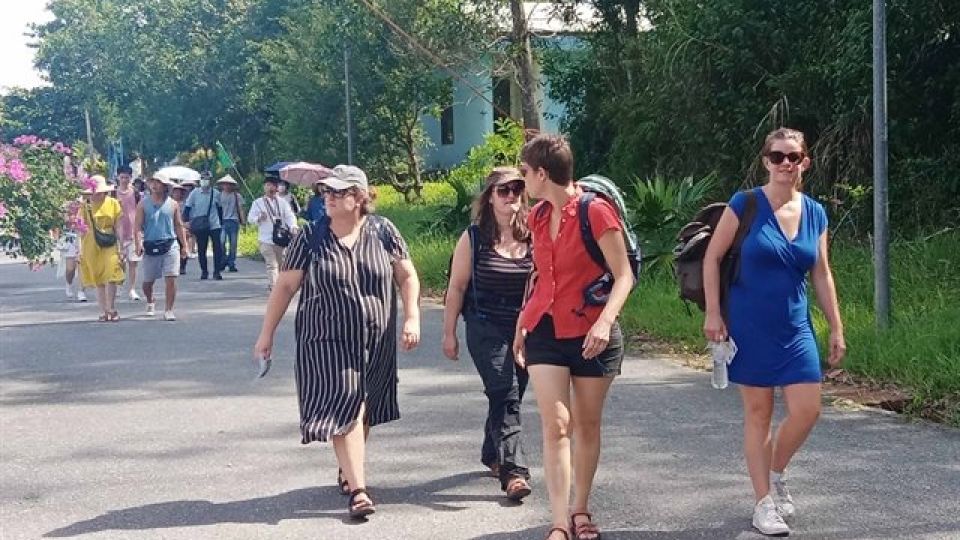August 1, 2023
HANOI — Việt Nam welcomed more than 6.6 million international visitors in the first seven months of 2023, hitting 83 per cent of the year’s target, according to the latest report from the General Statistics Office.
The number is 6.9 times than that of 2022 – taking into account that Việt Nam fully resumed international tourism activities on March 15 last year, but still only reaches 67.5 per cent of the arrivals seen in the same period in 2019 before the COVID-19 pandemic happened.
July alone saw over one million foreign arrivals – the first month in the year to accomplish this feat and 6.5 per cent higher than than the previous month.
Among the 6.6 million tourists, 87.6 per cent came to Việt Nam by air (5.8 million), 11.6 per cent by road (765,300), 0.8 per cent by sea (55,100).
While the number of foreign tourists has clearly not recovered to pre-pandemic figures, the Việt Nam National Authority of Tourism (VNAT) said the sector expected to soon reach its yearly target – set before China announced its reopening plans – as the second half of the year is usually the peak time for international visitors.
South Korea remained the largest source market of Việt Nam tourism in the first seven months of this year with 1.9 million visitors, accounting for one-third of total international visitors to Việt Nam. It was followed by China (738,000) and the United States (445,000).
Among the top ten source markets of Việt Nam tourism, four are in Northeast Asia – South Korea, China, Taiwan (China), and Japan, and three in Southeast Asia – Thailand, Malaysia, and Cambodia.
Australia and India ranked ninth and tenth. In Europe, the United Kingdom, France, and Germany were the three biggest source markets.
Many main source markets for tourists in Việt Nam saw growth in July, such as Taiwan (31.3 per cent), Japan (15 per cent), mainland China (14 per cent), the US (7 per cent) and South Korea (6 per cent); whereas Thailand, Malaysia, and Cambodia saw drops this month.
During the first seven months, the industry also served 76.5 million domestic tourists – including 12.5 million in July (peak summertime holiday). Total revenues from domestic tourism reached VNĐ416.6 trillion (US$17.58 billion).
Many localities have seen a high increase in revenue from accommodation and dining services in the past seven months.
Đà Nẵng City witnessed an increase of 40.3 per cent, Cần Thơ with 27.2 per cent, Đồng Nai with 23.6 per cent, HCM City with 23.4 per cent, Quảng Ninh with 21.8 per cent, Hải Phòng with 14.4 per cent, and Hà Nội with 11.8 per cent. These are all key tourist areas in the country.
According to the World Tourism Organisation (UNWTO), global tourist arrivals will not fully recover to pre-COVID-19 levels until 2024 at the earliest.
The increasing number of tourists, together with changes in consumption trends, tourism markets and digital technology, poses significant challenges to tourism human resources in the new situation.
According to VNAT, with the current growth rate, the country’s tourism industry needs 40,000 new employees each year while 25,000 employees need to be retrained. Meanwhile, local schools only train 20,000 students yearly. The number of professionally trained tourism workers accounts for only 43 per cent of the total workforce in the industry and nearly half of them do not know foreign languages.
In addition, the quality and productivity of Vietnamese workers in the tourism and hotel industries remain low.
Vietnamese tourism workers now have to compete with guest workers from the Philippines, Thailand, Indonesia, and Singapore, which means improving the quality of human resources is a must for Việt Nam in the coming time. — VNS


